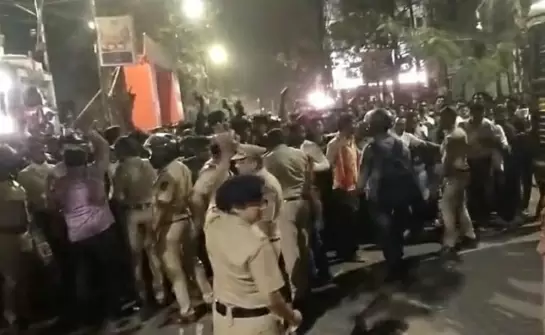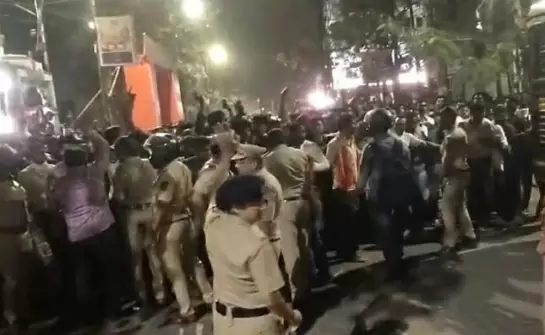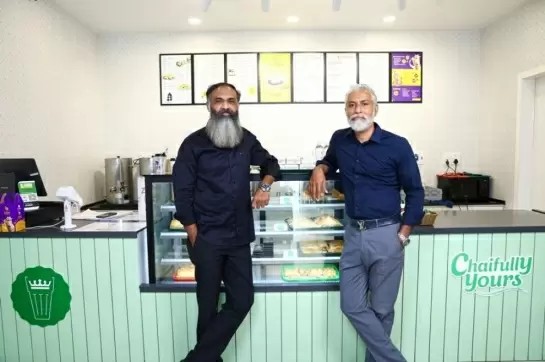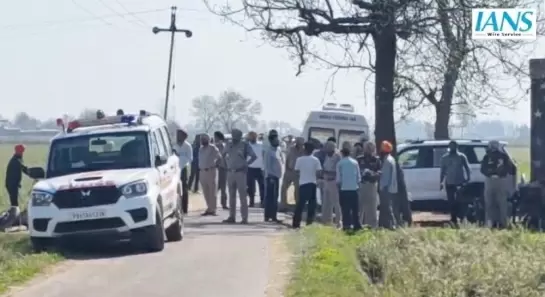For 70 years, Art 370 deprived J&K of everything, in 2 yrs UT saw massive change
New Delhi
29-June-2021
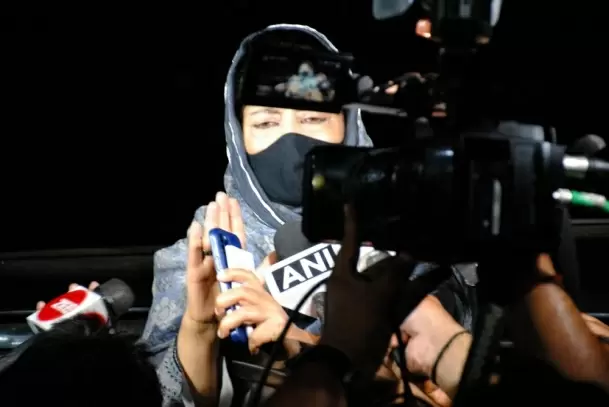
Photo: IANS
After attending the recent all-party meeting chaired by Prime Minister Narendra Modi in New Delhi, two former chief ministers of the erstwhile state of Jammu & Kashmir, Omar Abdullah and Mehbooba Mufti stood miles apart.
"It is foolish to demand the restoration of Article 370 of the Constitution from the Modi government. It took the BJP 70 years to fulfill its political agenda for (Article) 370. Our struggle has just started. We don't want to fool people by telling them we will get 370 back in these talks. It will be foolish to expect 370 will be back -- there has been no indication it will be restored by the current government", Omar said.
After the meeting Mehbooba said, "I will not contest the elections. I will do this because otherwise people will feel that the resolution of Article 370 is just a slogan for me and I am just doing politics over it. That is not the case; hence, I will personally not contest any election till it's reversed."
She claimed that Article 370 and 35A were a means for J&K people to have job security and also their identity of being from J&K. "So, these are important to us. And that is why you must have seen that J&K was India's most prosperous state," she said.
Since August 5, 2019 when the Centre abrogated J&K's special status and divided it into two union territories -- Kashmir-based leaders have been claiming that "everything has been snatched" from the people of Jammu & Kashmir.
These leaders seem to have forgotten that no one in J&K opposed the Centre's August 5, 2019 decision. Not a single protest was witnessed anywhere. People didn't react at all. They remained busy with their daily chores and the life went on.
Watch This TWL Video
J&K on path of development
During the past two years Jammu & Kashmir has witnessed a massive change as the projects that were lying dormant for the last several decades were revived in a speedy manner. Various developmental schemes -- acceleration of the projects being executed under the Prime Minister Development Package (PMDP), targeting the individual beneficiaries, restarting the long-pending projects by removing the obstacles, to ensure effective administration with transparency -- have been taken up after J&K started functioning as a Union Territory.
For developing the Information and Technology sector in J&K many sops have been framed. These include providing "subsidy on rent" to the outside investors. The policy document of the government envisages two IT parks -- one each in Srinagar and Jammu -- spread over 5 lakh square feet.
The J&K administration also released a real estate policy which states that "land banks" created by the government will be disbursed to "private developers" through a transparent bidding process.
The development has not been only confined to building roads and highways. Almost all the sectors that were ignored during the past political regimes have been explored and new life stands infused in the projects to help J&K grow and come at par with the other states of the country. From 2015 to 2020 only 37 per cent funds from PM's Rs 80,000 crore package were utilized.
In 2015, Prime Minister Modi had announced Rs 80,000 crore package for J&K's development. When PM Modi had announced the special financial package late Mufti Mohammad Sayeed was the chief minister of J&K, his party Peoples Democratic Party (PDP) had joined hands with Bharatiya Janata Party (BJP) to form coalition government in the erstwhile princely state.
PM Modi had stated that it was his "heartfelt desire" that the Rs 80,000 crore package announced by him should help in turning the fate of J&K people. He had stated that the money should be used for converting J&K into a modern, prosperous and progressive place. "Delhi's treasury is for you. Not only our treasury, but our heart also beats for you," Modi had said.
However, in 4 years the J&K government could only spend 37 per cent of Rs 80,000 crore package. When the package was announced at that time it was decided by the Central Government that the sanctioned amount would be spent in five years and the developmental works under the package had to be completed by the ending 2020.
According to the official figures, of the Rs 80,068 crore package, Rs 30,049 crore were released till March 31, 2019 for the erstwhile J&K state. Of the 63 projects, only 18 were completed. In 2020, the parliamentary panel had expressed dismay over the slow pace of work under the package.
Article 370 deprived J&K of benefits
When the Article 370 - a temporary provision of Indian Constitution - was in vogue, the Kashmir-based politicians remained in power for nearly seven decades. For the 70 years the Centre kept on pumping money into J&K with a hope that it would be utilized for the benefit of the common man. But the leaders in J&K kept on feeding people with slogans like self rule and autonomy and forgot to concentrate on the issues which touched the skin of the populace.
The so-called special status of J&K deprived people of the benefits of the centrally sponsored schemes and the progressive laws that were devised by the Indian Parliament. The reservation laws for the weaker sections of the society were not applicable in J&K. There was a complete gender bias as if a man from J&K married a woman from any outside state he could retain his property rights but if a woman married an outsider she used to lose all her rights.
But now, J&K is a changed place as the benefits of it getting merged with Union of Indian have started to trickle down to the people.
Since the day Article 370 has been done away with Mehbooba Mufti has been claiming that J&K has lost its identity but the facts and figures contradict her claims. Local leaders beating around the bush has failed to impress J&K denizens, who have witnessed a massive change during the past two years.
The Articles 370 and 35A deprived outsiders from buying land in J&K due to which Kashmir didn't witness much industrial growth as outside investors were not ready to invest in the erstwhile state.
After the Centre's August 5, 2019 decision Jammu & Kashmir Government received investment proposals worth Rs 15,000 crore from nearly 40 companies. Players from various fields like Renewable Energy, Hospitality, Defence, Tourism, Skill, Education, IT & Technology and infrastructure have come forward to invest in J&K.
J&K's transition into a Union Territory restored confidence of the people in the Constitution of India and robust democratic system of a united sovereign India with Justice, Liberty, Equality and Fraternity assuring the dignity of every Indian.
Reforms in power sector
During the past two years the J&K government has strived to achieve 24x7 power for all. J&K has achieved 100 per cent household electrification which has rekindled the hope of many who had never seen electricity in their lives. Household water connections have reached 43 per cent of rural households which is double the national average of 21 per cent, and a road map has been prepared to ensure 100 per cent coverage of piped water supply to all 18.16 lakh rural households by December 2021.
The Indian government approved a nearly Rs 6,000 crore multi-purpose project in February 2020 to provide uninterrupted water for irrigation to farmers in J&K's Kathua district and to produce power. In 2014, when assembly polls in Jammu & Kashmir were round the corner and the Himalayan state was facing acute shortage of electricity, then J&K chief minister Omar Abdullah had chosen to lock horns with the Centre over return of power projects by the National Hydroelectric Power Corporation (NHPC).
"Return of power projects by the NHPC to the state is of significant importance and critically essential for the energy supply and economic development in Jammu & Kashmir," Omar had said.
He had claimed that the Indus Water Treaty between India and Pakistan was "a cause of enormous losses to J&K". "While both India and Pakistan benefited from the treaty, J&K was put to disadvantageous position."
The Centre had turned down Omar's demand and had made it clear that NHPC would continue to own the power projects in J&K.
In September 2019 Union Power Minister R.K. Singh and then J&K Governor Satya Pal Malik jointly inaugurated 15 power projects and laid the foundation stone for 20 others worth Rs 10,000 crore. The unbundling of the Power Development Department into two corporations, Kashmir Power Development Corporation Limited (KPDCL) and Jammu Power Development Corporation Limited (JPDCL) has opened new avenues. J&K is on way to becoming self reliant in the power sector.
Article 370 won't come back
Kashmir-based leaders, including Omar Abdullah and Mehbooba Mufti, need to understand that no government at the Centre would even think of rolling back Article 370 and there are no takers for their rhetoric that they will get everything back. J&K is prospering and people have already associated themselves with "New India" where they know that their future is secure and they will grow.-IANS
More Headlines
Chennai Police Hunt Suspects After Brutal Kotturpuram Double Murder
Haryana BJP Leader Shot Dead Over Land Dispute On Holi: Police
Mumbai Police Bust High-Profile Sex Racket in Hiranandani Hotel
NPG Evaluates 8 Key Infrastructure Projects Under PM GatiShakti Plan
Rupee Symbol Debate Heats Up as Tamil Nadu Opts for ‘ரூ’
Chennai Police Hunt Suspects After Brutal Kotturpuram Double Murder
Haryana BJP Leader Shot Dead Over Land Dispute On Holi: Police
Mumbai Police Bust High-Profile Sex Racket in Hiranandani Hotel
NPG Evaluates 8 Key Infrastructure Projects Under PM GatiShakti Plan
Rupee Symbol Debate Heats Up as Tamil Nadu Opts for ‘ரூ’






